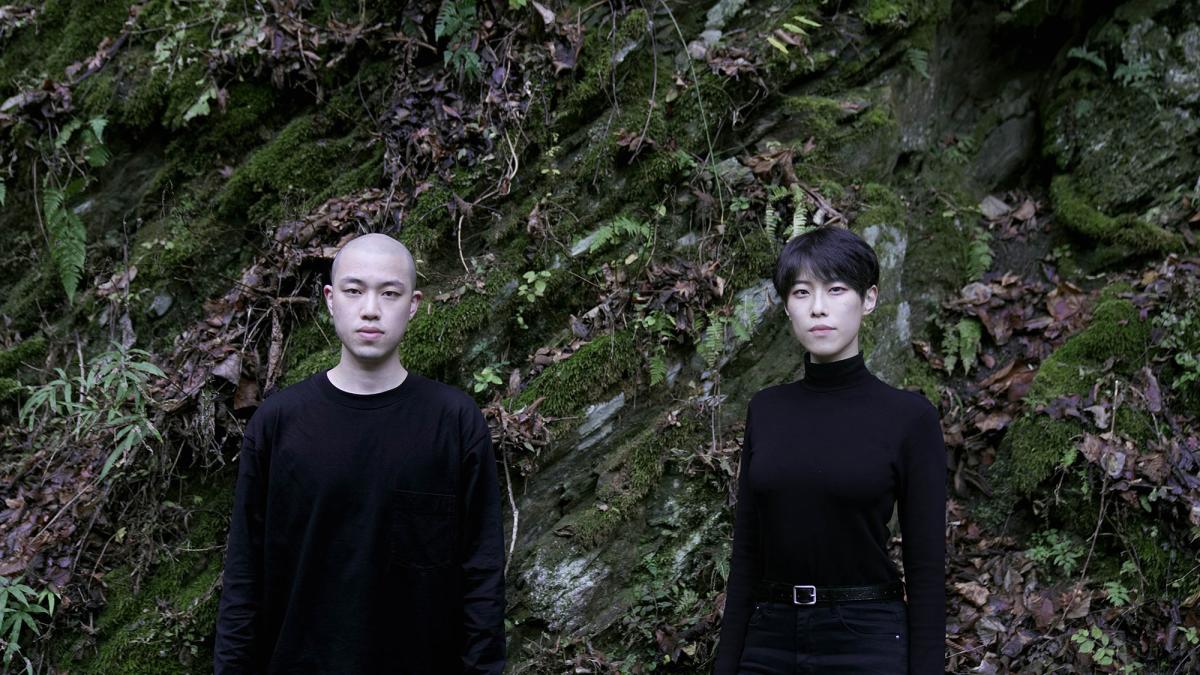
Cruise Industry Analyst Speaks On Cruising During Hurricane Season
Lubin Professor Andrew Coggins Jr. provides expert insight to KGMI News/Talk 790 Radio Station about the cruise industry during hurricane season.

City of Poughkeepsie Upgrading, Adding New Security Cameras To Help Reduce And Combat Crime
Elisabeth Haub School of Law Bennett Gershman discusses with News 12 potential legal challenges arising from the increasing use of street cameras in communities.
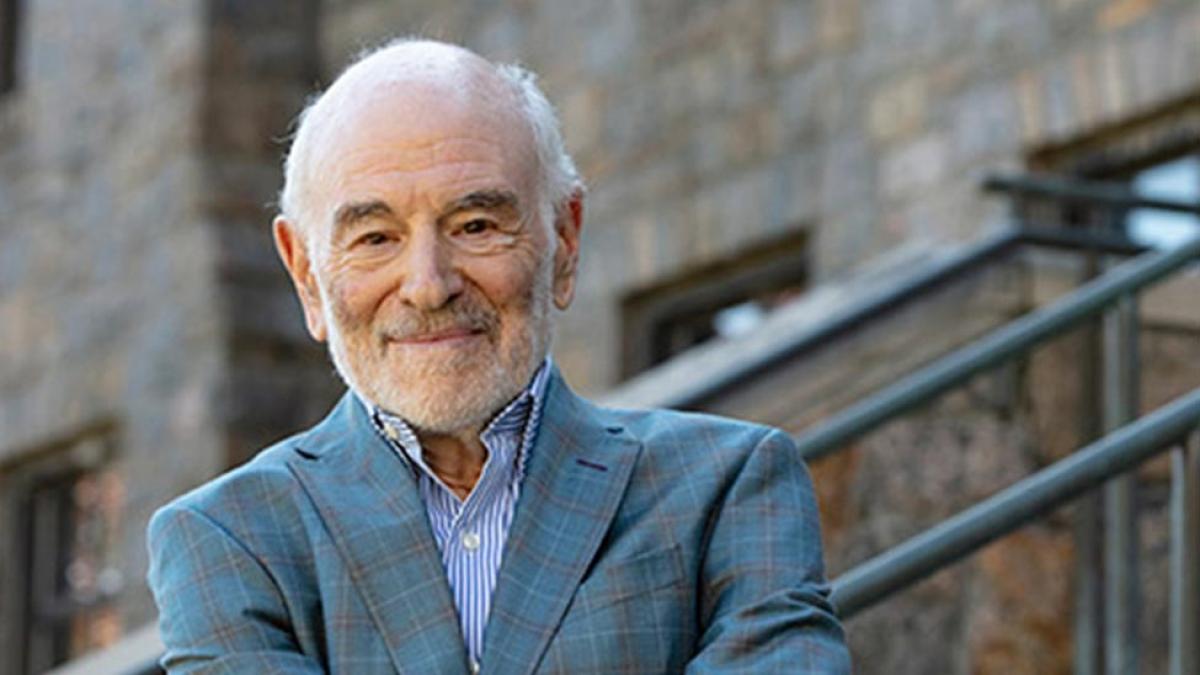
The 6 Starter Travel Credit Cards for Beginners
Lubin Professor Andrew Coggins Jr. provides expert insight on credit cards, "If one is starting the job that involves lots of travel with one airline, a card that comes with club privileges for the card holder and spouse might make sense. Especially if your home airport is a regional one. The club is nice when you're having adventures with connections."

Guiding Seidenberg Forward: Get to Know Dean Chen
As of August 16, 2024, Dr. Li-Chiou Chen has stepped into the role of Interim Dean at the Seidenberg School of Computer Science and Information Systems. With an extensive background in cybersecurity and a strong commitment to student success, Dr. Chen is ready to guide Seidenberg toward continued progress.
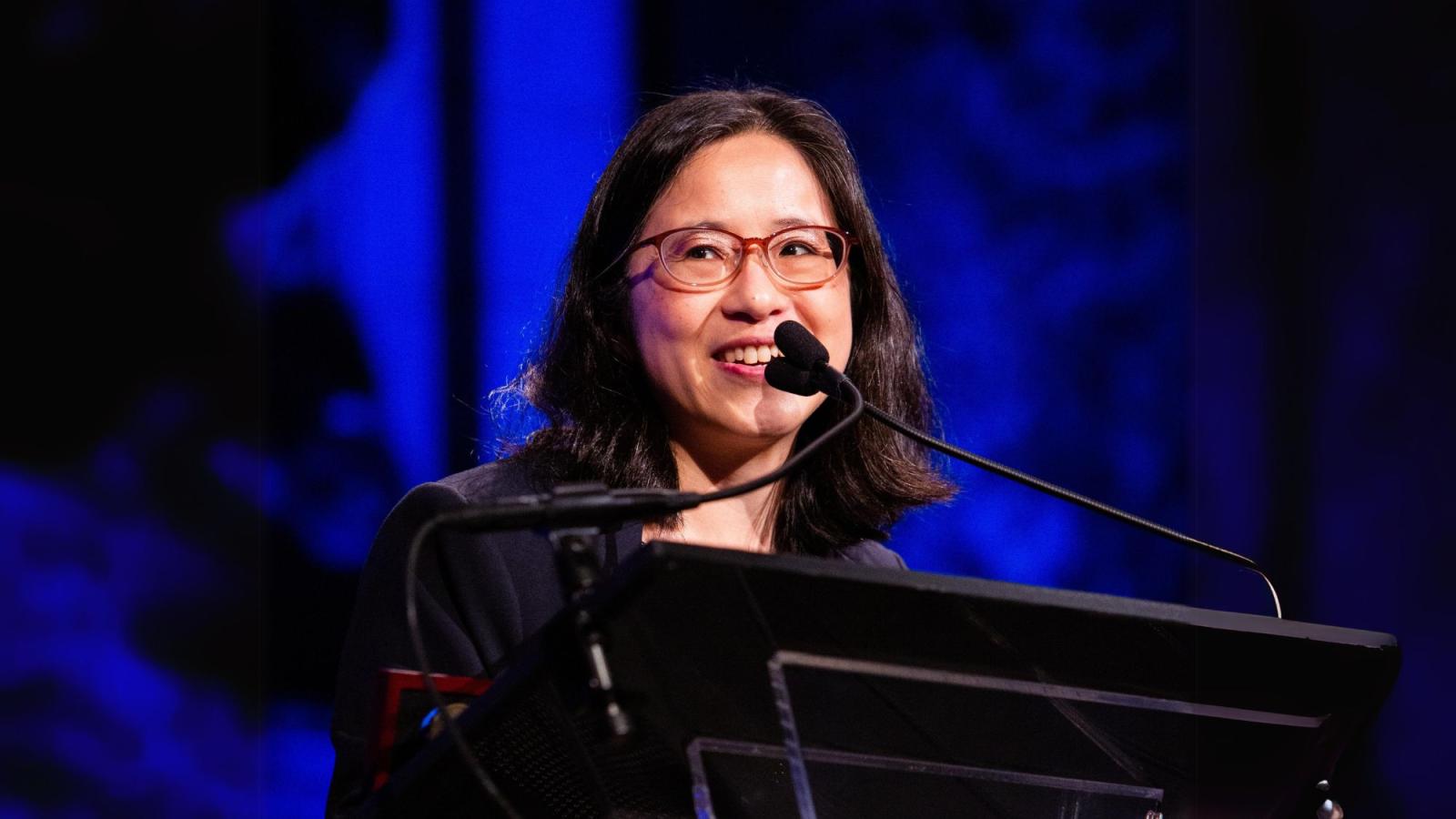
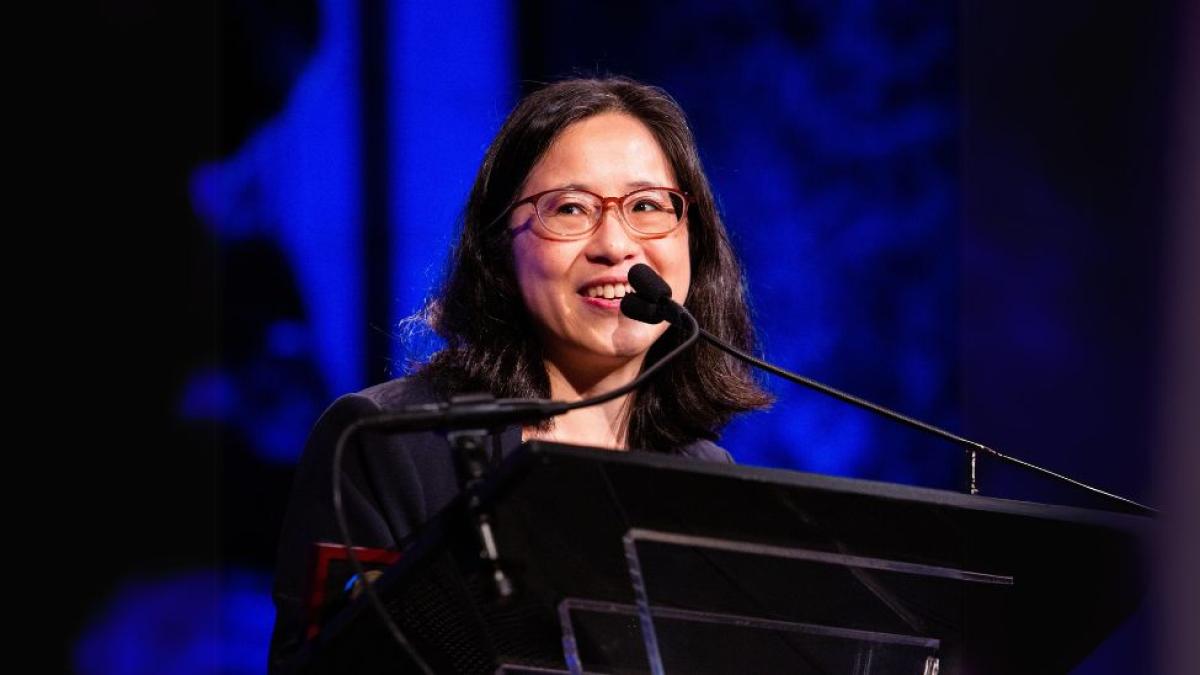
As of August 16, 2024, Dr. Li-Chiou Chen has stepped into the role of Interim Dean at the Seidenberg School of Computer Science and Information Systems. With an extensive background in cybersecurity and a strong commitment to student success, Dr. Chen is ready to guide Seidenberg toward continued progress. She aims to further expand programs like cybersecurity, game development, and artificial intelligence, while fostering a supportive and collaborative environment for both faculty and students. In this interview, Dr. Chen reflects on her career journey from Taiwan to New York City and Pace University, her passion for technology, and delves deeper into her vision for the future of Seidenberg.
I’m very curious about your journey and how you got to the position of Seidenberg’s interim dean, how your life path and your career path have gotten you here. Could you tell me a bit about your background and how you became interested in the tech field?
Sure. Let’s start with where I came from and how I got here. I’m originally from Taiwan, where I earned my master’s degree in management information systems. After that, I worked for a year in market research for a computer company called Acer but soon discovered that I am more interested in the technical aspect of computing.
During my undergraduate years, I was a student assistant for developing information systems of the university supervised by one of our professors, which sparked my interest in system design and development. After I left Acer, I switched gears to work as a software engineer managing the systems and databases I had helped develop as a student. I always considered myself a programmer and liked to automate processes with my programming skills. Even before cybersecurity was a well-known term, I loved exploring various operating systems to see what I could do with them. Some of my friends moved to the United States for further study, and I thought it could be a great adventure for me as well. That's when I decided to pursue a PhD and went to Carnegie Mellon University in Pittsburgh in their engineering and public policy program.
The education in Carnegie Mellon had a profound impact on me. Many research projects I was involved with were interdisciplinary. That is, researchers in different disciplines worked together to solve a problem. While I worked with the information technology group, we also explored the public policy issues relating to the adoption of new technology. Because of my earlier interests in systems and security, I was connected to work with the Computer Emergency Response Team/Coordination Center in the university’s Software Engineering Institute. I began developing simulation programs and tools to analyze computer security incidents, which then later became the focus of my dissertation where I built computational models to assess security risks.
And after that you got a job at Pace University?
After completing my PhD, I wanted to move to a bigger city and Pace University felt like the right choice. I moved to New York to become a professor in the department of information technology (IT), and I started teaching and conducting research in cybersecurity. While I was doing my PhD, I learned more about how to conduct research and write papers, but less about how to teach students in a college classroom. So, in the first couple of years, I spent a lot of time on adjusting myself to the classroom and on preparing materials that are at the right level for my students.
While I was adjusting to my teaching role, I also started to do more work in the research area and started applying for grants to support research activities and students who worked with me. My first federal funded grant was on developing web security tools and teaching modules. I really liked the experience and the collaboration with colleagues and students. This experience led me to the NSF-funded grants from the CyberCorps®: Scholarship for Service program. This program offers student scholarships in cybersecurity and has helped us recruit and train many students interested in this area. This is a program very dear to my heart and would like to keep it going along with other academic programs supporting it.
That’s an incredible path you created for yourself. And after teaching for a while, you took on different and bigger roles at Seidenberg as well. How did this bring you to your new position of Interim Dean of the school?
I had some experience in education administration before I took on the new position. Up until this August when I took on the role of Interim Dean, I was the Executive Director of our cybersecurity programs, where I handled academic programs, research grants, and Pace’s designation in the Center of Academic Excellence in Cyber Defense. But even before that role, I was the IT Department Chair for several years. These administrative roles have taught me how to balance academic and administrative duties. My previous experience prepared me for the new role, and now I get to look at the whole school from a different angle. I can look at it from a very holistic view, and can have a more strategic perspective about which direction to take Seidenberg in.
If we think of the school as a boat, as Interim Dean I am basically the captain. This doesn’t mean that I am driving the ship myself, but I need to guide the direction of the school and need to ensure we are all working together. This includes the faculty and staff, as well as the students.
It’s not just about the captain’s direction, everyone on this boat plays a vital role in determining where we are going, and together we are forming a collective vision. So, what I am most excited about is this collaborative journey.
I love that analogy. So, if you can envision a path for the school over the next year, what would that look like?
I think that the school has a very good foundation right now. Comparing to where we were a decade ago, the school is in a very different place. We should thank the efforts of the past deans for leading us to this positive trajectory. The technology landscape is changing and there will always be challenges and new trends, so we must adapt and evolve with the changing world. At the moment, we have a lot of new programs and majors, like the BS in Game Development, as well as the expansion of our cybersecurity programs and AI initiatives. The faculty have a wide range of research grants and activities, and we are supporting a lot of our students in a variety of extra-curricular or experiential learning activities.
All of these are areas I would like to focus on. While we are continuing this upward trajectory by looking for new directions to expand, we need to enrich the student experience inside and outside the classroom.
I am very grateful that many of our alums and industry advisers are enthusiastic in helping our students by providing them opportunities and guiding them to jumpstart a bright future.
And do you have anything to add, something that you would say to the students who will be reading this article?
I want students to consider Seidenberg as their home, a place where you can not only study, but also make friends and participate in things you are interested in beyond the classroom. And it’s important that you feel supported, that you feel like you can always find someone to talk to at the school. And then after you have graduated, I want you to feel like you have grown, matured, and have a connection to something greater. But also, that Seidenberg will always be your home to come back for support and friendships.
Press Release: Pace University Art Gallery Presents the Being Transducer Exhibition
Pace University Art Gallery is pleased to present Being Transducer, the first solo exhibition in New York by the Taiwanese art collective Synphysica, Chiaochi Chou and Youyang Hu. This exhibit builds on the duo’s ongoing exploration of a "bio-Internet of Things," expanding upon philosopher Timothy Morton's object-oriented ecological perspective.
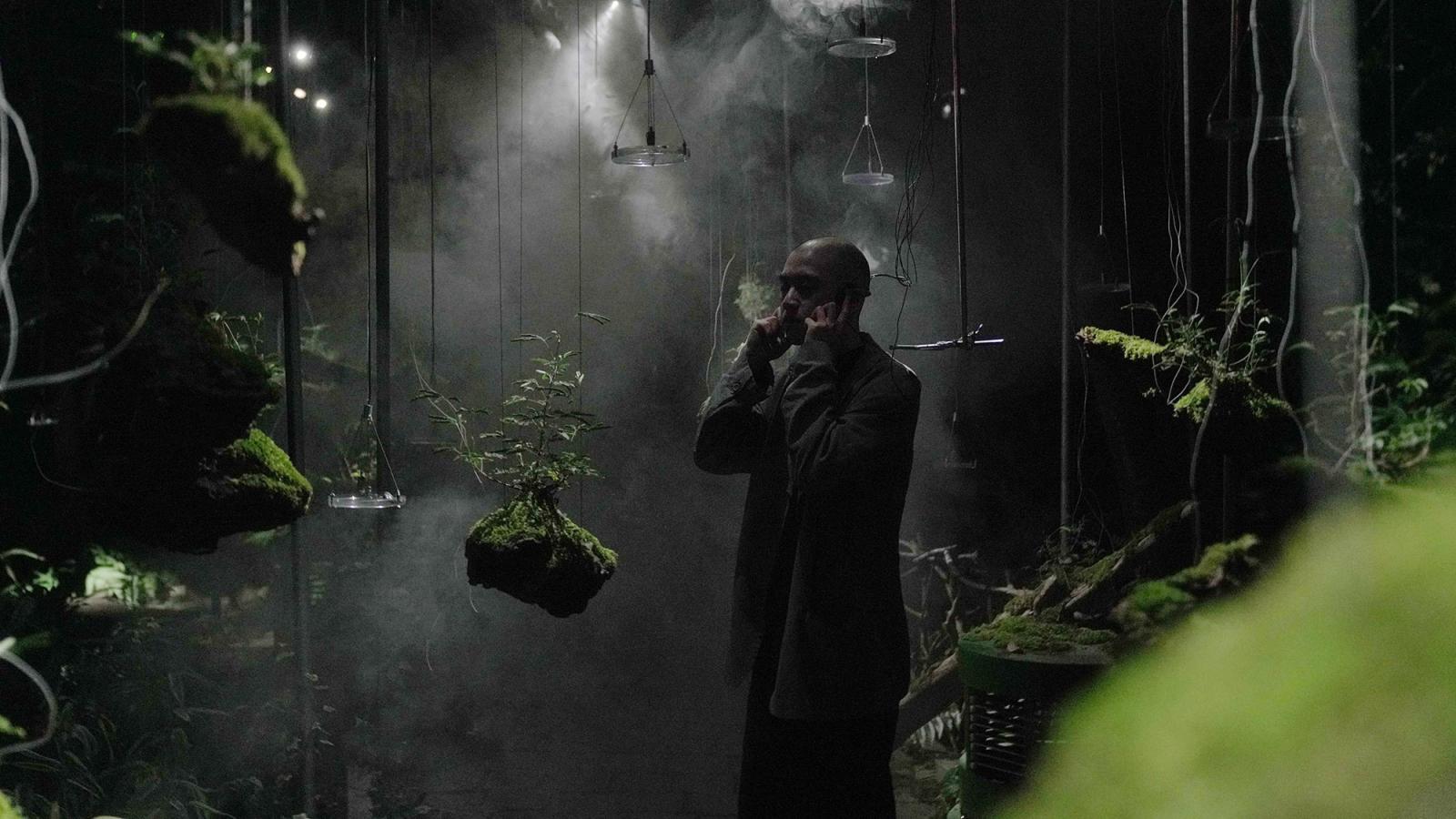
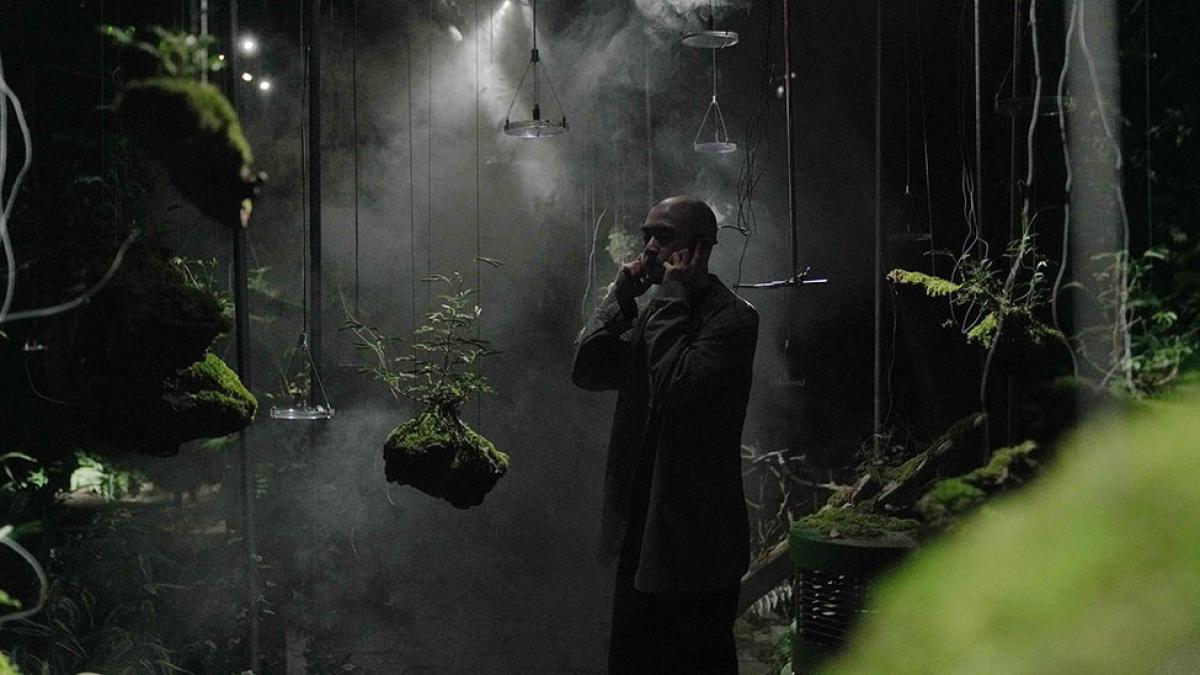
The Exhibit Explores the Complex Connection Between Plants and Humans with the Aid of Technology
Pace University Art Gallery is pleased to present Being Transducer, the first solo exhibition in New York by the Taiwanese art collective Synphysica, Chiaochi Chou and Youyang Hu. This exhibit builds on the duo’s ongoing exploration of a "bio-Internet of Things," expanding upon philosopher Timothy Morton's object-oriented ecological perspective.
Being Transducer aims to reveal a network of biological signals that transcend individual, species, geographic, and temporal boundaries, highlighting the complex relationships and multiple existences within ecosystems. The exhibit opens with a reception on Tuesday, October 1 from 5:00 p.m.–7:00 p.m.
Founded in 2018 by Chou and Hu, Synphysica is known for its large-scale installations that incorporate living organisms, including humans and plants. Their work seeks to reveal the subjectivity of non-human entities through bioelectrical signals, break down physical barriers between species, and visually portray the ecological landscape of collective interactions. Their solo exhibition at Pace University engages with Timothy Morton’s concept of "dark ecology," illustrating how all elements within an ecosystem—human and non-human alike—exist within a complex, interwoven network.

The exhibition highlights both the visible interactions within this ecology and the subtle, often imperceptible interactions that lie beneath the surface. As Chou explains, “The boundary between humans and nature is absolutely blurred. We cannot regard nature simply as an external world. The concept of humans and nature being a binary relationship must be cast away.”
The six immersive artworks on display showcase Synphysica's creative evolution from 2020 to 2024. They reveal how subtle life signals manifest within materials and traverse connections between humans, nature, and objects—both physically and virtually. The installations create links from New York's bustling skyscrapers to forests around the globe, highlighting the intricate interplay between these diverse environments.
This exhibit, which remains on view through Saturday, October 26, 2024, is made possible by the New York State Council on the Arts with the support of the Office of the Governor and the New York State Legislature. To create the work on view, the artists have received further collaboration from the National Tsinghua University Chiao-Wei Li Laboratory, the University of Tokyo Yasuaki Kakehi Laboratory, Columbia University Uriarte Lab, the Taipei Economic and Cultural Office in New York (TECO), the Asian Cultural Council (ACC), Brooklyn Artists Studio (BAS), and Project Fulfill Art Space as well as sponsorship from the College of Humanities and Social Sciences at the National Tsinghua University and Crystal Park in New York.
Pace University Art Gallery is in Lower Manhattan at 41 Park Row. All the gallery’s exhibits and events are free and open to the public. Fall gallery hours are Tuesday-Saturday 12:30 p.m.-4:30 p.m., Thursday until 7:00 p.m. and by appointment. Please check gallery Instagram for university holiday closures.
Image credits
- Portrait of the artists Chiaochi Chou (R) and Youyang Hu (L) of the Synphysica art collective
- Synphysica, Apercevoir_NY, human, plant, speaker, water, electronic components, on-site edition, 2024
About the Synphysica art collective
Synphysica was founded in 2018 by artists Chiaochi Chou and Youyang Hu. The name signifies a millennium-born entity, without a fixed form, existing as an elusive data presence. The collective is renowned for its signature use of hybrid media and large-scale installations.
Chou and Hu leverage their diverse backgrounds to explore the relationship between humans and nature through the interactions among humans and non-humans driven by biosignals. During the COVID-19 pandemic, they reassessed the impact of technology on ecological evolution in their isolated lives, subsequently focusing their creative direction on exploring the essence of objects and life, extending beyond a human-centric perspective. As a result, their creative domain shifted from indoor exhibition spaces to natural environments, employing sensors and algorithms to detect, analyze, and transform scenarios not limited to human experience but constructed by both living and non-living entities. This approach has solidified the collective’s methodology of integrating research and creation, highlighting the ontological world structured by the two artists.
Chou is an emerging Taiwan artist, renowned for her installation art that incorporates living organisms and physical materials. She also oversees the organization of the collective's exhibitions. Chou is currently pursuing a PhD at Tsinghua University under the guidance of Professor Chia-Wei Li. As the 2024 recipient of the Asian Cultural Council fellowship, she is currently residing in NYC. She was also a member of the IDSA x Ars Electronica Founding Lab.
Hu is an interdisciplinary artist and researcher whose expertise in firmware integration leads the collective’s development capabilities. His work spans bioinformatics, AI (Artificial Intelligence) algorithms, human-computer interaction, and mixed reality research, with many publications in top conferences and journals in computer science. He is currently a PhD student at Professor Yasuaki Kakehi Lab at the University of Tokyo.
About the Pace University Art Gallery
Founded with the conviction that art is integral to society, the Pace University Art Gallery is a creative laboratory and exhibition space that supports innovation and exploration for both artists and viewers. Open to students, staff, and faculty from across the Pace campuses and, equally, to the Lower Manhattan community and visitors from around the world, the Art Gallery encourages personal investigation and critical dialogue via thought-provoking contemporary art exhibits and public programming. Enhancing the Art Department's Bachelor of Arts and Bachelor of Fine Arts programs, the Art Gallery offers students real-world opportunities to exhibit their own art and to work directly with professional artists to install and promote exhibitions. All exhibits and events are free and open to the public.
About Dyson College of Arts and Sciences
Pace University’s liberal arts college, Dyson College, offers more than 50 programs, spanning the arts and humanities, natural sciences, social sciences, and pre-professional programs (including pre-medicine, pre-veterinary, and pre-law), as well as many courses that fulfill core curriculum requirements. The College offers access to numerous opportunities for internships, cooperative education and other hands-on learning experiences that complement in-class learning in preparing graduates for career and graduate/professional education choices.
About Pace University
Since 1906, Pace University has been transforming the lives of its diverse students—academically, professionally, and socioeconomically. With campuses in New York City and Westchester County, Pace offers bachelor, master, and doctoral degree programs to 13,600 students in its College of Health Professions, Dyson College of Arts and Sciences, Elisabeth Haub School of Law, Lubin School of Business, Sands College of Performing Arts, School of Education, and Seidenberg School of Computer Science and Information Systems.
The Lubin School of Business Listed Among Fortune and LinkedIn's Top MBA Programs
The Lubin School of Business has been selected as one of LinkedIn's Top 100 MBA Programs Worldwide to Grow Your Career. This international ranking recognizes our dedication to student outcomes and to empowering the next generation of business leaders in today's rapidly evolving workforce.

The Lubin School of Business has been selected as one of LinkedIn's Top 100 MBA Programs Worldwide to Grow Your Career. This international ranking recognizes our dedication to student outcomes and to empowering the next generation of business leaders in today's rapidly evolving workforce. Notably, Lubin also stands out among the Top 5 programs for job placement and gender diversity, underscoring our commitment to fostering an inclusive and supportive environment that drives innovation and success. [See Dean Singleton's video on how an MBA adds value in today's workforce.]
Similarly, Lubin's full-time MBA is ranked among Fortune's Best MBA Programs for 2025. We are thrilled, as this ranking provides a comprehensive analysis of the institutions that are shaping the next generation of business leaders and executives.
Earlier this year, U.S. News & World Report ranked Lubin's graduate online MBA program among the best online programs.
All of these rankings demonstrate that Lubin students are ready to excel in their chosen fields, multidisciplinary in problem solving, grounded in action, and trained in outcomes.
"At Lubin, we have an unwavering commitment to the highest standards of excellence," says Lawrence G. Singleton, Dean of the Lubin School of Business. "Our focus on experiential learning, critical thinking, and leadership development prepares our students to make an immediate impact in their chosen fields. Our MBA program serves as a launchpad for success in today's dynamic business landscape."
"Our focus on experiential learning, critical thinking, and leadership development prepares our students to make an immediate impact in their chosen fields. Our MBA program serves as a launchpad for success in today's dynamic business landscape."
“This achievement highlights our commitment to excellence in business education, which is important to providing a flexible and engaging learning environment for our students,” says Katherine Richardson, Lubin's Associate Dean for Graduate Programs. "Lubin is at the forefront of delivering a quality education, making us a top choice for working professionals and graduate students."
Join us in celebrating these remarkable achievements!
Elisabeth Haub School of Law at Pace University Hosts Haub Visiting Scholar Professor Maciej Nyka
The Elisabeth Haub School of Law at Pace University had the honor of hosting Professor Maciej Nyka, Chair of the Department of Economic Law and Environmental Protection at the University of Gdańsk in Poland.
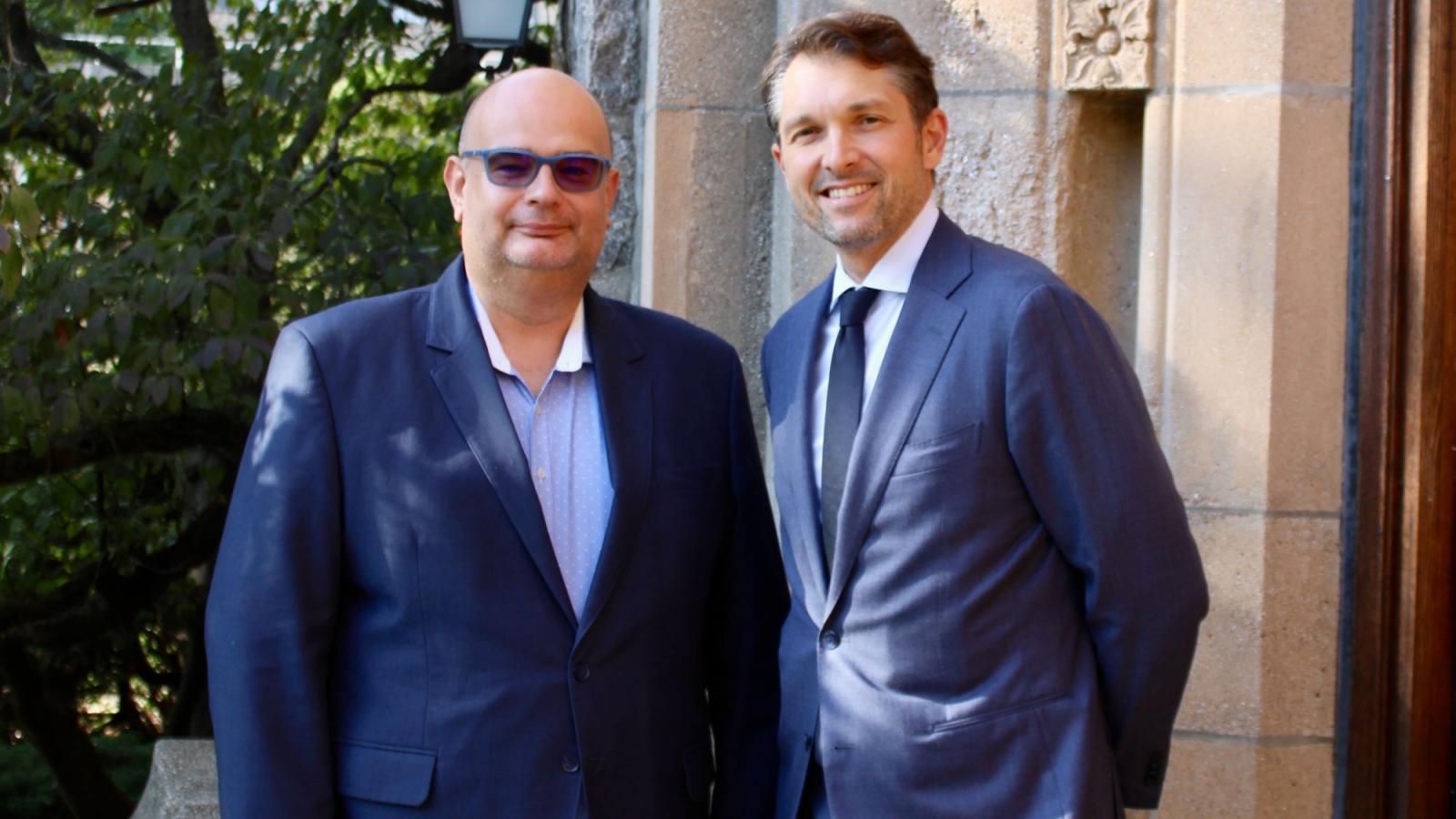
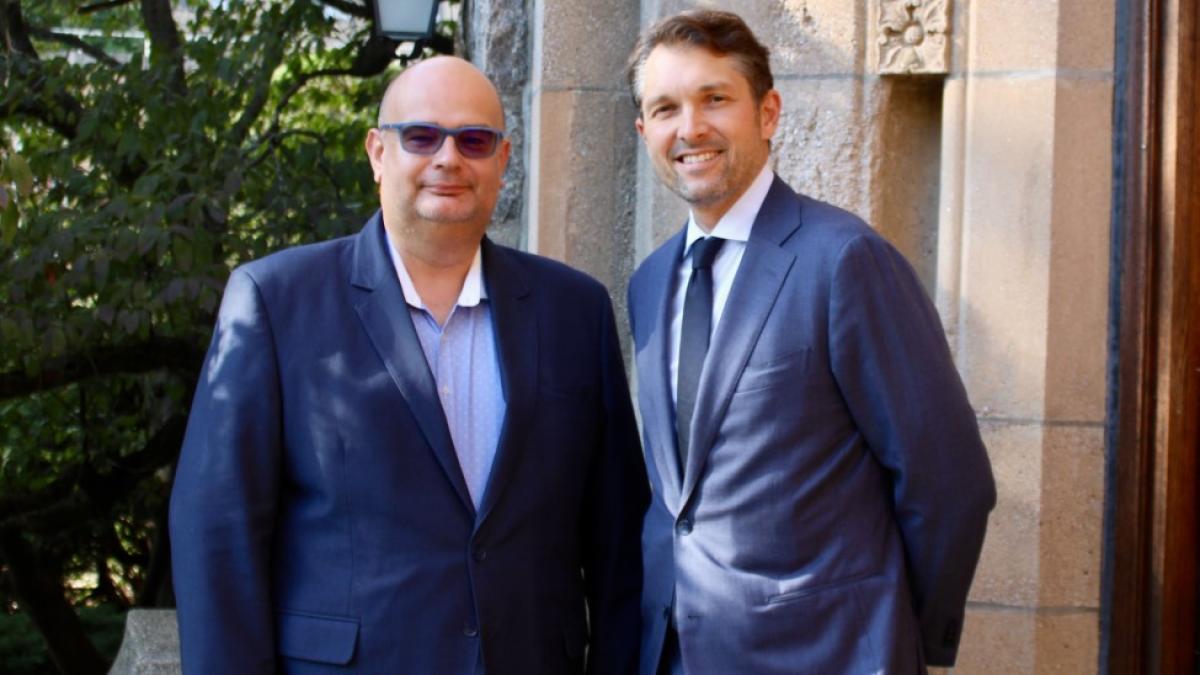
The Elisabeth Haub School of Law at Pace University had the honor of hosting Professor Maciej Nyka, Chair of the Department of Economic Law and Environmental Protection at the University of Gdańsk in Poland. Professor Nyka is a 2024-25 Haub Visiting Scholar at the Elisabeth Haub School of Law at Pace University. He also holds the professor’s chair at the Division of Environmental Toxicology at the Faculty of Health Sciences within the Institute of Maritime and Tropical Medicine at the Medical University of Gdańsk and is a deputy head of the Space Sciences Commission at the Polish Academy of Sciences (Gdańsk Branch) – focusing on issues of space/space sector sustainability and legal instruments of management of space resources.
During his recent visit to Haub Law, Professor Nyka spent time collaborating and speaking with the Haub Law community. He began his visit connecting with the Pace | Haub Environmental Law faculty and staff at a luncheon. Later that evening, Professor Nyka was a guest speaker in Kerlin Distinguished Professor of Environmental Law, Associate Dean for Environmental Law Programs and Strategic Initiatives, Jason J. Czarnezki’s Natural Resources Law Class, where he presented a lecture titled: Managing natural resources in international environmental law – from sovereignty to responsibility. Professor Nyka is also author and co-author of numerous books and articles published in Poland and abroad. During his stay, Professor Jason Czarnezki and Professor Nyka also had the opportunity to discuss their joint research project on ensuring sustainability in the Baltic Sea.
“Last year, Professor Nyka was kind enough to host me at the University of Gdańsk in Poland, and I am honored to be able to do the same at Haub Law,” said Professor Czarnezki. “Professor Nyka brings with him a wealth of knowledge and opportunity for research and collaboration. He is at the forefront of research involving the intersection of the economy and the environment. On behalf of the Haub Law community, we are honored to have Professor Nyka as a Haub Visiting Scholar.” Throughout his visit, Professor Nyka also spent time touring New York City, including United Nations Headquarters, with both Pace University and Haub Law colleagues and also meeting with administration, faculty, and staff at Pace University’s downtown Manhattan and White Plains campuses.
“The innovative work that Pace | Haub Environmental Law has done and continues to do is inspirational,” said Professor Nyka. “The work that the Pace | Haub Law Environmental Program has done involving sustainability is groundbreaking and making a real impact. Collaboration between universities and scholars to confront the climate crisis is key to making a positive impact in halting the crisis in its tracks. I am honored to serve as the Haub Visiting Scholar, and I have a deep belief that this visit is just the beginning of intensive collaboration between Pace University and University of Gdańsk. Such collaboration would benefit students and academics, but is also crucial in facing modern environmental challenges. Both US and EU can and must learn from each other in this field.”
During his visit, Professor Nyka and Professor Czarnezki also met with Haub Law’s Associate Director Graduate Programs and International Affairs, Diana Ramirez about collaboration opportunities. “Haub Law is excited to partner with the University of Gdańsk, our first collaboration in this region of Europe. This partnership will allow students from both institutions to participate in exchanges and collaborate on academic projects."
During Professor Czarnezki’s 2023 visit to the University of Gdansk in Poland, he spent time meeting with the Rector of the University, Professor Piotr Stepnowski, as well as the Dean of the Faculty of Law and Administration, Professor Wojciech Zalewski, where many opportunities for research and organizational collaboration were discussed. Professor Czarnezki was also a guest at the University's monthly doctoral student seminar at the Economic Law and Environmental Protection Department, and gave a guest lecture on the evolution of environmental regulation in the United States. Visits to the European Solidarity Centre in Gdansk and The Emigration Museum in Gdynia were also part of the agenda and gave Professor Czarnezki an opportunity to connect with his Polish heritage.
In their roles at Haub Law, Haub Visiting Scholars collaborate with faculty, guest lecture classes, and work closely with students in the Environmental Law Program and others. As previously announced, funding for the Haub Visiting Scholars was made possible by a gift from the Haub family in recognition of the essential role of environmental science, informatics and other technology and allied fields towards formulating environmental policy and law.
Professor Alexander K.A. Greenawalt Awarded 2024 Goettel Prize for Faculty Scholarship
The Elisabeth Haub School of Law at Pace University is proud to announce that Professor Alexander K.A. Greenawalt was awarded the 2024 Goettel Prize for Faculty Scholarship for his article, “With Intent to Destroy in Whole or in Part: Genocide, Ethnic Cleansing, and a Lost History,” which was published by Wisconsin Law Review earlier this year (2024 Wis. L. Rev. 933 (2024)).
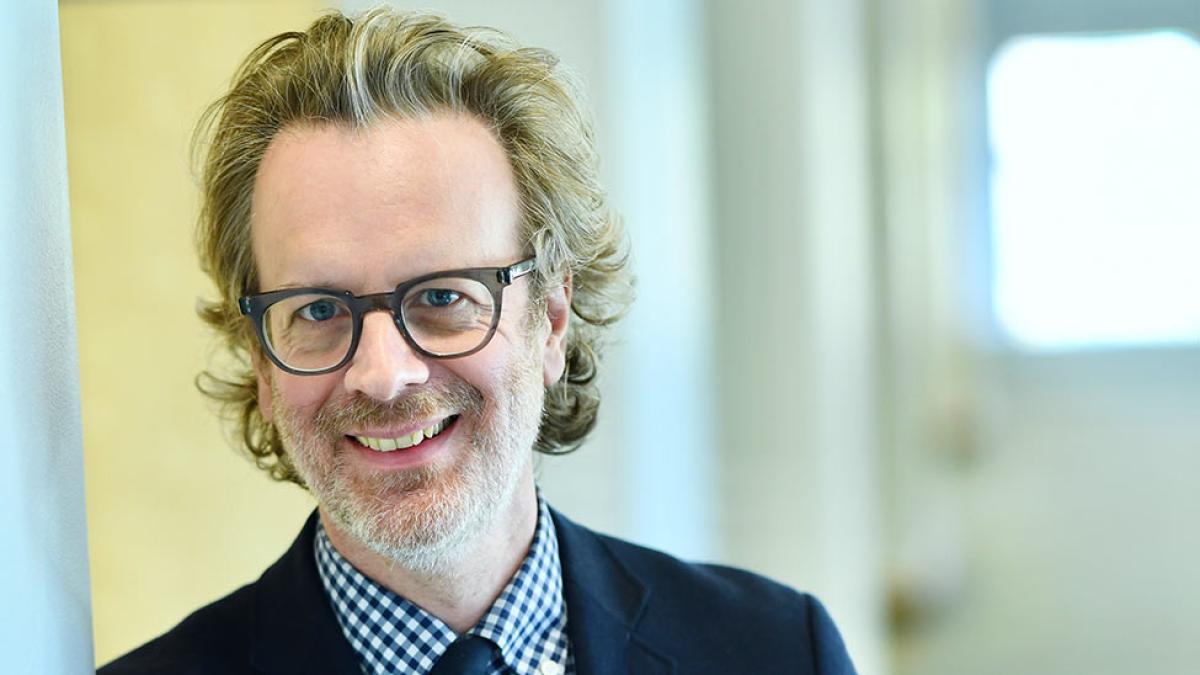
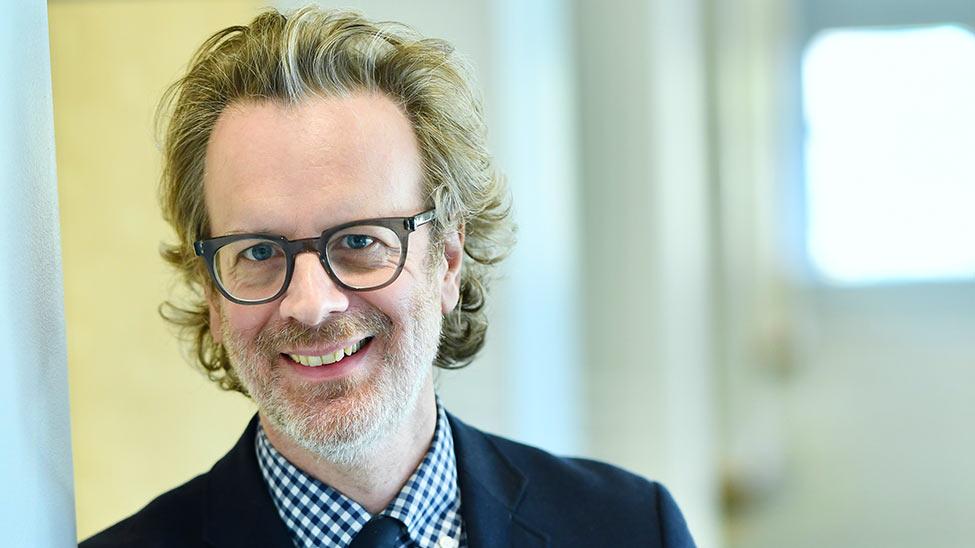
The Elisabeth Haub School of Law at Pace University is proud to announce that Professor Alexander K.A. Greenawalt was awarded the 2024 Goettel Prize for Faculty Scholarship for his article, “With Intent to Destroy in Whole or in Part: Genocide, Ethnic Cleansing, and a Lost History,” which was published by Wisconsin Law Review earlier this year (2024 Wis. L. Rev. 933 (2024)).
The Goettel Prize was created in 2004 to encourage and recognize outstanding scholarship by members of the Elisabeth Haub School of Law at Pace University faculty. Each year, members of the tenured and tenure-track faculty are invited to submit their work for consideration (on an anonymous basis) by a selection committee of outside reviewers. This year's committee consisted of three distinguished law school professors: Professor Michael Herz, the Arthur Kaplan Professor of Law at Cardozo Law School; Professor Emily Morris, the David Brennan Professor of Law at University of Akron School of Law; and Professor Kerri Stone, Professor of Law at Florida International University College of Law.
Professor Greenawalt’s article examines the meaning of the term “genocide,” drawing in part upon original research from the 1948 Genocide Convention, which first codified genocide as a crime under international law. In particular, the article engages ongoing debates about whether genocide necessarily entails the intent to physically destroy at least a substantial part of a protected group, or whether the crime of genocide can also apply to cases of so-called “ethnic cleansing” where atrocities are committed with the intent to displace a group. Selection committee member Professor Michael Herz commented that the article “grapples with a fundamental question, shows a mastery of the relevant legal materials and surrounding literature, casts new light on a familiar subject, is both scholarly and lawyerly, and is written in prose that is precise, fluid, and elegant.”
“I am extremely proud to have been selected as the recipient of the 2024 Goettel Prize by such a distinguished panel of external judges,” said Professor Greenawalt. “The article engages several themes: the ways in which contested claims of genocide often assume outsize importance in public discourse, the gap between popular and legal understandings of genocide, and the ways in which the confusing law of genocide has exacerbated these problems. I propose an alternate understanding of the crime that is more consistent with the lost history of the Genocide Convention and is also normatively preferable.”
Associate Dean for Faculty Development and Professor of Law Emily Waldman commented: “This article draws on Professor Greenawalt’s expertise in criminal law, international law, and the laws of war, as well as his original historical research on the topic of genocide. By presenting new discoveries from the drafting history of the Genocide Convention, Professor Greenawalt provides new insight into longstanding debates.”
Professor Greenawalt joined the Haub Law faculty in 2006 from the firm of Debevoise & Plimpton LLP, where his practice focused on international disputes. He was a teaching fellow at Columbia Law School in 2005 and was previously a clerk for the Honorable Stephen F. Williams of the U.S. Court of Appeals for the District of Columbia Circuit. Professor Greenawalt is a graduate of Columbia Law School, where he was a James Kent Scholar and Articles Editor of the Columbia Law Review. He is now a three-time winner of the Goettel Prize for Faculty Scholarship. In 2018, his article "Targeted Capture" received the Goettel Prize and in 2016, his article “Foreign Assistance Complicity” was also selected for the Goettel Prize.=
Melanie Prado: A Voice for Diversity and Inclusion at Pace University
Arts and Entertainment Management student Melanie Prado is the new Student Assistant for the Division of Diversity, Equity, and Inclusion (DEI). With a passion for amplifying underrepresented voices and her own multicultural background, Melanie is eager to contribute to the division’s mission of fostering inclusivity and promoting change on campus.
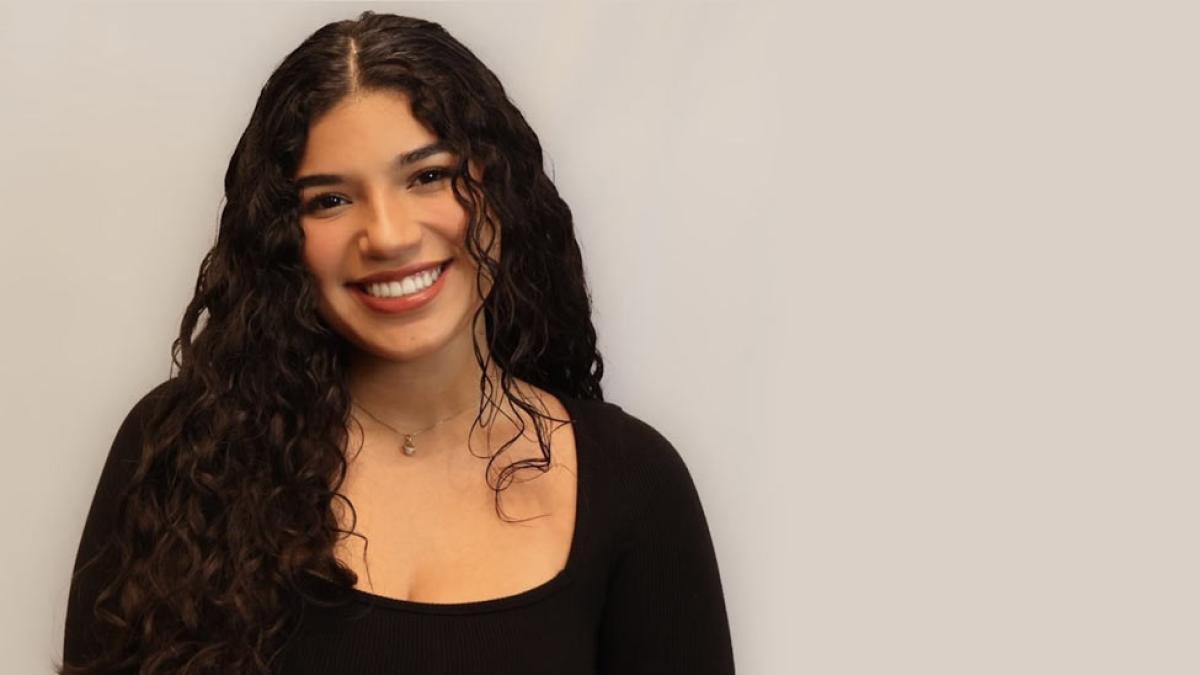
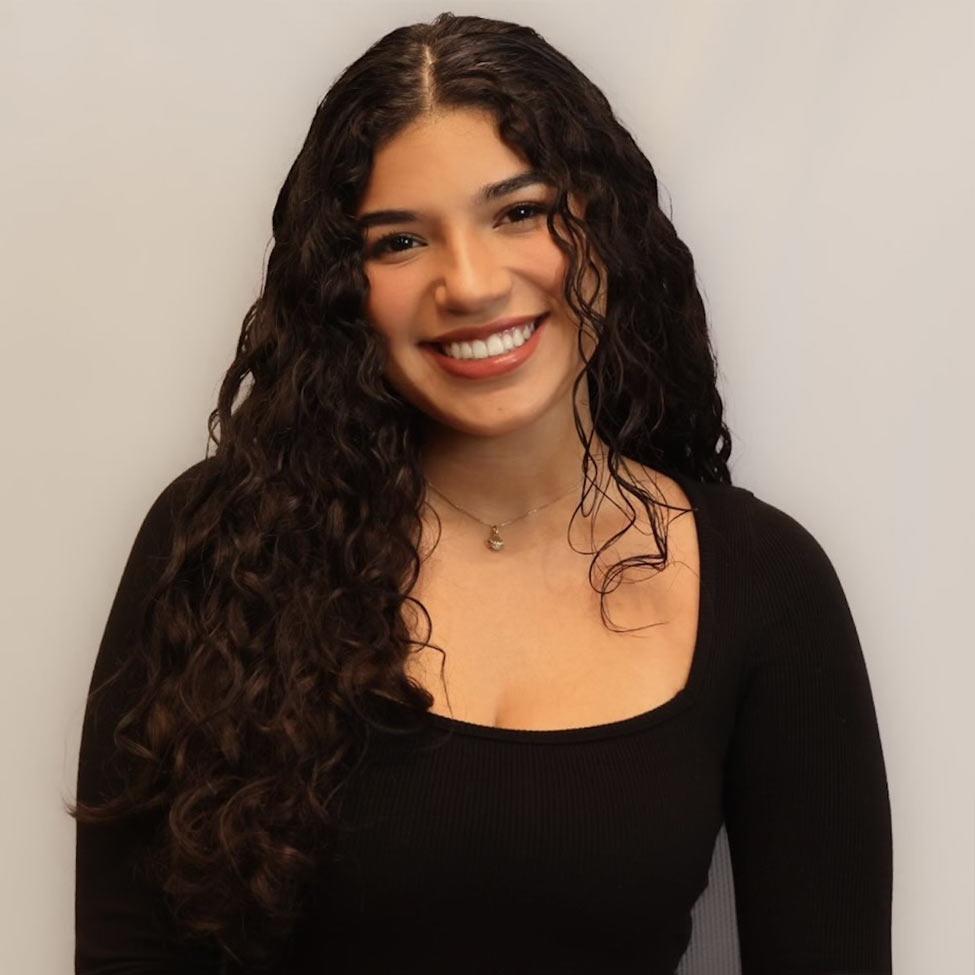
The Division of Diversity, Equity, and Inclusion is proud to welcome Melanie Prado (she/her) as their new student assistant this year! Melanie is currently a junior at Pace University, where she’s pursuing a BBA in Arts and Entertainment Management. With her vibrant personality and passion for fostering inclusivity, Melanie brings a unique perspective to our team, blending her academic focus with her commitment to making a difference on campus. As someone deeply involved in both the arts and diversity initiatives, she’s ready to make a meaningful impact while learning and growing alongside the DEI team.
What drew you to work with the Division of Diversity, Equity, and Inclusion?
The Division of DEI plays a crucial role in amplifying the voices of underrepresented individuals on our campus. As someone with Colombian and Costa Rican heritage, this mission deeply resonates with me. Growing up in a multicultural family, I’ve experienced firsthand the importance of fostering communication and understanding among diverse perspectives. Working with a team dedicated to creating an inclusive environment felt like a natural fit, and I’m excited to contribute to a mission that not only raises awareness but actively drives change.
What are your responsibilities as a DEI Student Assistant?
As a DEI Student Assistant, I manage tasks that support the division’s mission. This includes overseeing our social media presence and handling office duties that ensure our daily efforts run smoothly. The role is incredibly rewarding, as it allows me to witness how our work makes a tangible impact on the Pace community.
What are you looking forward to this semester?
I’m excited to deepen my involvement with the DEI team and see how our initiatives shape the student experience at Pace. I look forward to contributing to projects that foster inclusivity and help make our resources more accessible on campus.
Learn more about Pace’s Division of Diversity, Equity, and Inclusion.
Asha Kadir on Building a Safer, Supportive Community at Pace University
Meet Dr. Asha Kadir, Pace’s Interpersonal Violence Prevention Specialist at the Pleasantville Campus. From resilience-building workshops to new collaborations, Dr. Kadir shares her plans for Fall 2024 and offers advice on creating a safer campus community. Learn more in her full Q&A!
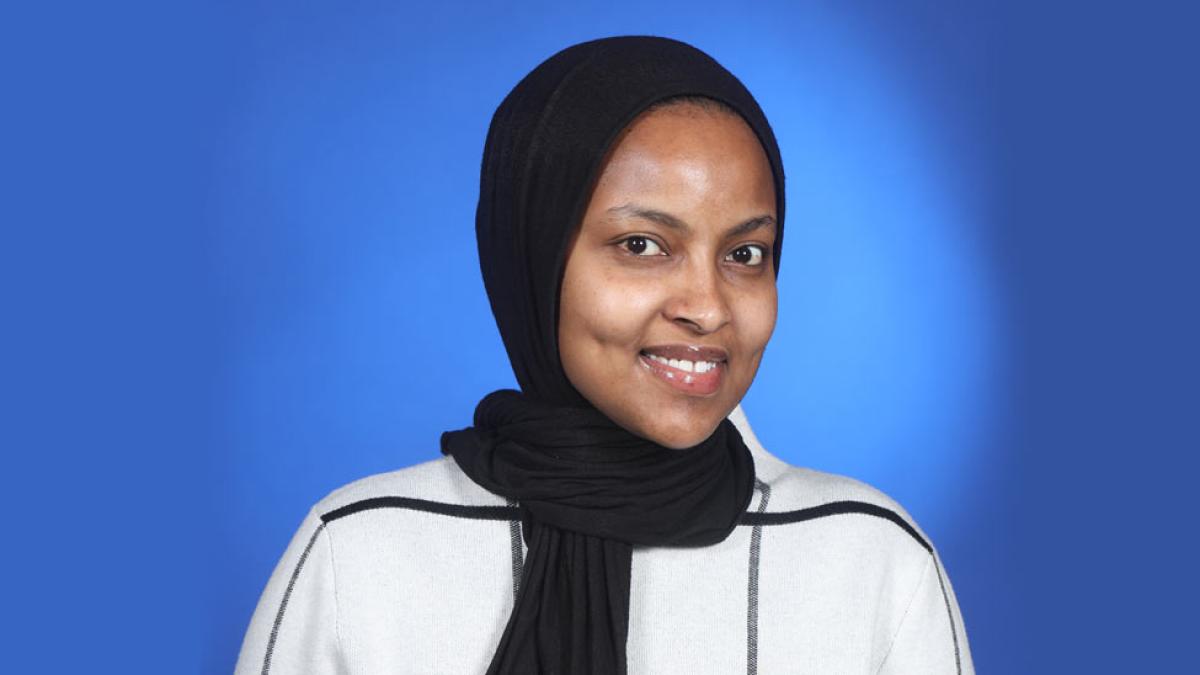
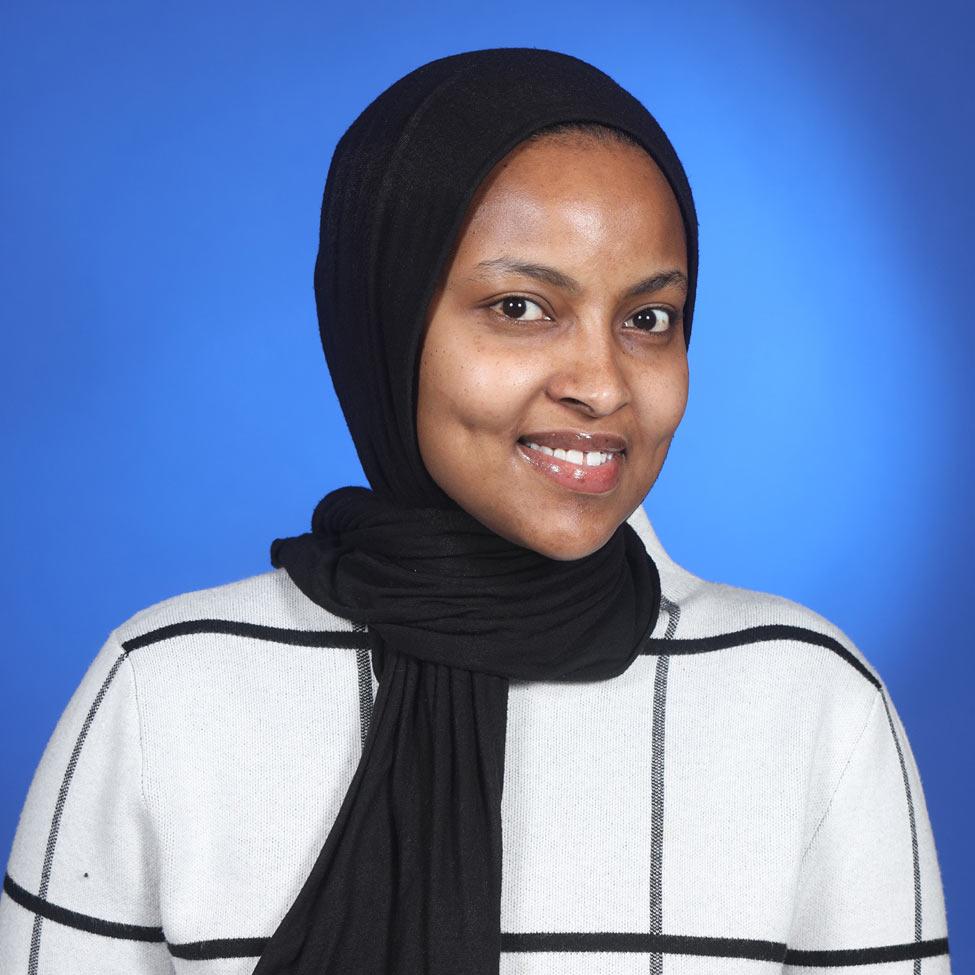
Asha M. Kadir, PhD, is the Interpersonal Violence Prevention and Education Specialist at Pace University’s Pleasantville Campus and holds a PhD in mental health counseling from Pace University. Before her current role, Dr. Kadir earned an MS in clinical mental health counseling from Lynn University, where she co-authored the workbook Finding Your OASES: Strategies for Coping with Stress and Developing a Resilient Identity. This work continues to inform her practice as she integrates resilience-building techniques into her support for students. Dr. Kadir's approach is firmly rooted in evidence-based practice, a cornerstone of her efforts in sexual violence prevention and education. Her unwavering commitment to research-driven methodologies underpins her dedication to fostering a supportive and resilient environment for Pace University students, ensuring the highest quality of care and support.
What are you most excited about for the Fall 2024 semester?
Over the summer, our office strengthened its connections with various on-campus departments. I'm very excited about the upcoming collaborations and wonderful events we have yet to plan and successfully execute this academic year. The new workshop approach, implemented with UNV 101, allows all students to learn about our services, consent, and healthy relationships, which makes me enthusiastic and optimistic about the increased impact.
Are there ways that students, staff, and faculty can get involved with Office of Sexual and Interpersonal Wellness (OSIW) on the Pleasantville Campus?
The Pace Community can get involved in multiple ways. Sign up for one of our workshops or contact us for partnerships and collaborations. We are always open to attending events, so please feel free to reach out!
What is one piece of advice you'd like to offer as the semester begins?
Creating a campus free of interpersonal violence requires the involvement of many people and is a collaborative effort. I suggest using your voice and showing your support. We all have a part to play in preventing violence and supporting survivors. This can involve speaking out when we witness it, reevaluating how we handle consent in our relationships, and educating ourselves with knowledge and resources to support and empower survivors.
Are there upcoming OSIW events and programs?
We are organizing and planning events for Domestic Violence Awareness Month. This fall, watch for these and many more upcoming programs. The best way to stay updated is through our Instagram page, @osiwplv.
Learn more about Pace’s Division of Diversity, Equity, and Inclusion.